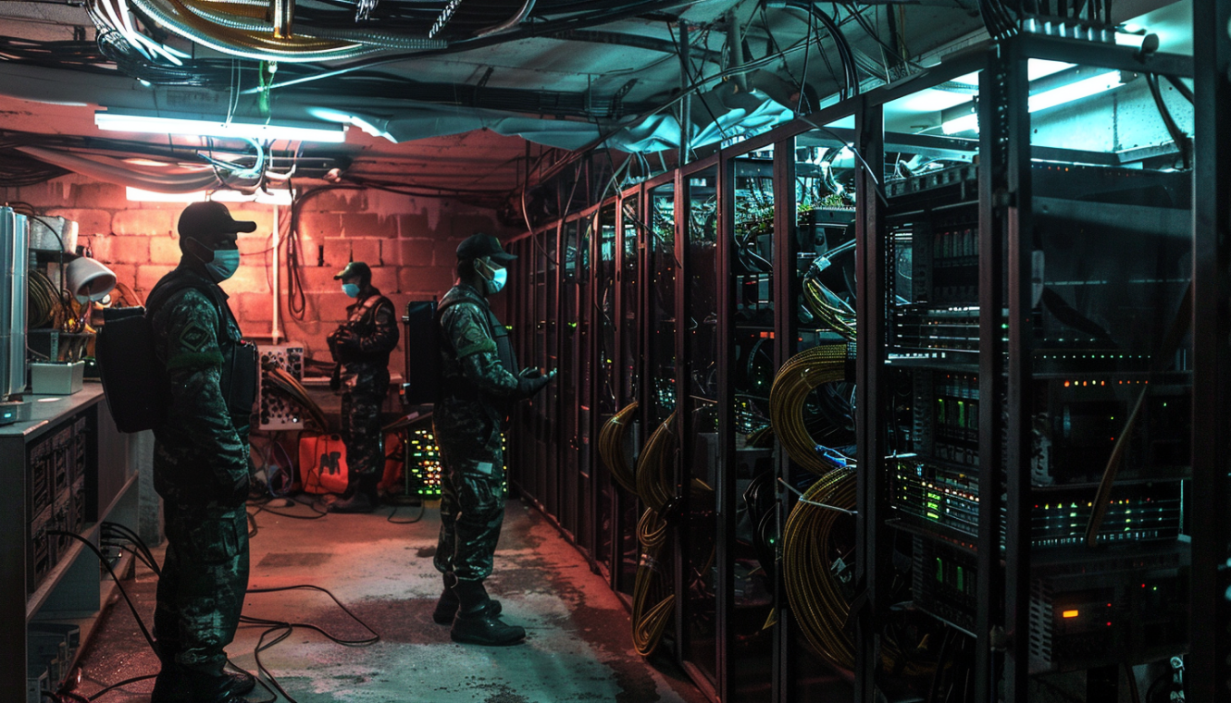Venezuela Bans Crypto Mining
By Olivier Acuña | TH3FUS3 Chief Editor
May 19, 2024 01:12 PM
Reading time: 2 minutes, 10 seconds
TL;DR The Venezuelan government has prohibited cryptocurrency mining, citing its high electricity demands. This decision follows a series of blackouts and corruption investigations, aiming to stabilize the national power grid.

The Venezuelan government has joined the list of countries that have frowned on crypto mining due to its hefty electricity demands.
Government's Official Stance
According to a local news outlet, Venezuela's Ministry of Electric Power (MPE) has unveiled plans to disconnect cryptocurrency mining farms from the national grid.
The move aims to regulate excessive energy consumption and guarantee a stable power supply for the population. An X post from Venezuela's National Association of Cryptocurrencies stated that crypto mining is prohibited throughout Venezuela. This decision prioritizes energy stability over the burgeoning crypto-mining industry.
Recent Crackdown and Confiscations
The government's move follows a recent crackdown. As part of a broader government corruption operation, local authorities recently seized 2,000 cryptocurrency mining rigs in Maracay, in Aragua, some 120 kilometers southwest of Caracas.
The Venezuelan Ministry emphasized the need to offer efficient and reliable electrical service across the country, which meant eliminating the extremely high consumption of these crypto-mining farms.
According to officials, these measures are essential to stabilize the national power supply, which has been unreliable for the past decade. The country has experienced recurring blackouts, particularly since 2019, which have significantly impacted residents' daily lives and the overall economic performance.
Global Context
Cryptocurrency mining is only partially accepted worldwide due to its energy consumption, which is considered high by electricity specialists.
In response, countries such as China and Kazakhstan have implemented stringent regulations or outright prohibitions on the practice to safeguard their power infrastructure and prioritize energy allocation to vital public services.
The government's move against cryptocurrency mining is reportedly part of a more significant anti-corruption push, leading to several top officials' arrests. Joselit Ramírez, the ex-head of the National Superintendency of cryptoassets (Sunacrip), is a crucial figure in these corruption allegations.
Public Involvement and Previous Measures
Rafael Lacava, Governor of Carabobo state, has reportedly emphasized the importance of public collaboration in detecting illegal mining operations.
The governor encouraged citizens to come forward and report any unlawful activities, stressing the vital role that community involvement plays in protecting the reliability of their electricity supply.
However, this is not Venezuela's first act against crypto mining activities. In March 2023, Venezuela's energy supplier shut down crypto mining facilities nationwide to reorganize the national crypto department and corruption investigations involving the country's oil company.
Corruption Allegations
Venezuela's attorney general, Tarek William Saab, disclosed that government officials were allegedly running parallel oil operations with the assistance of the national crypto department.
This crackdown aligns with broader global efforts where last year, eight major cryptocurrency mining operators in Kazakhstan signed an open letter to President Kassym-Jomart Tokayev, complaining about the high energy prices for miners.



